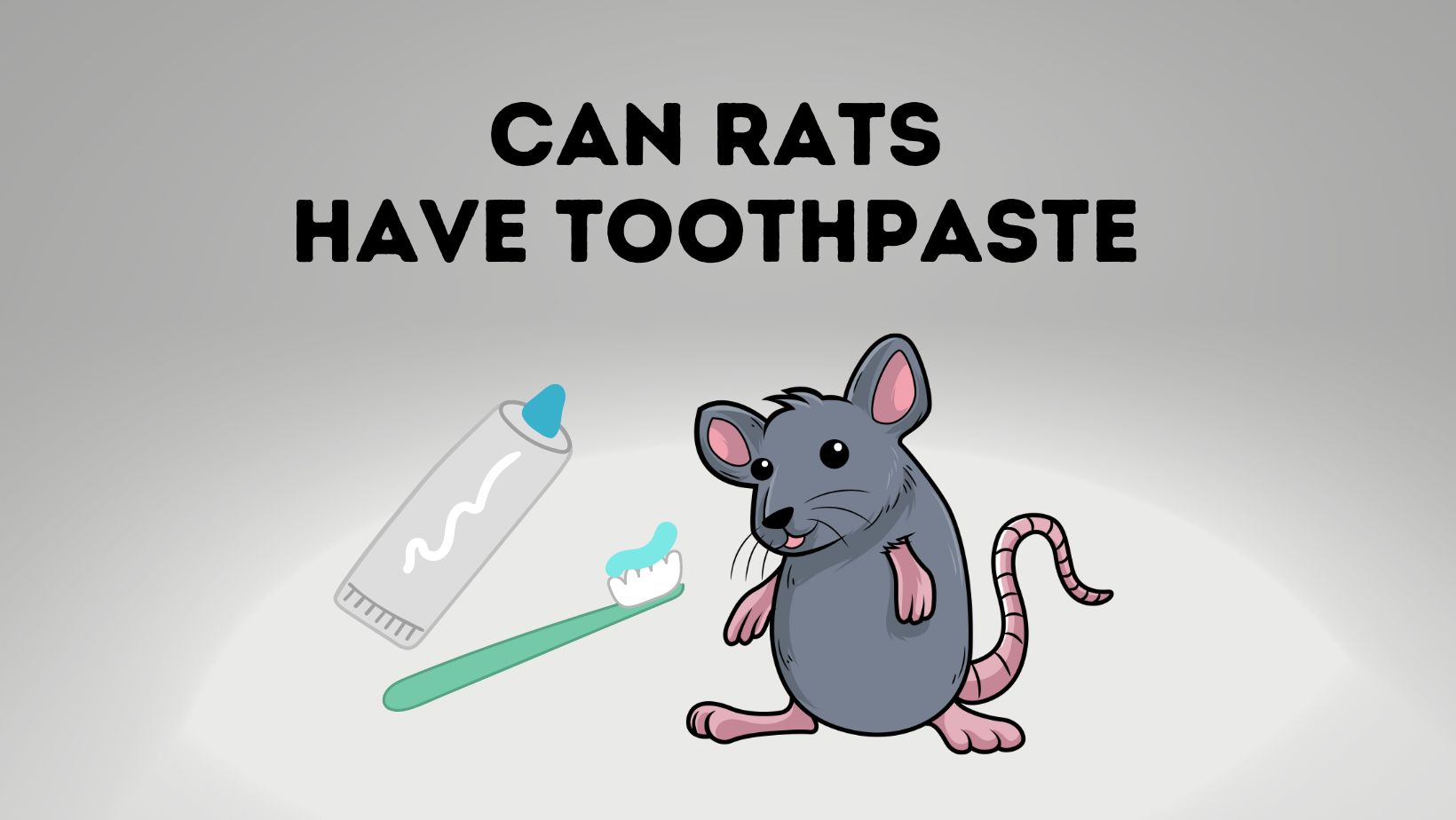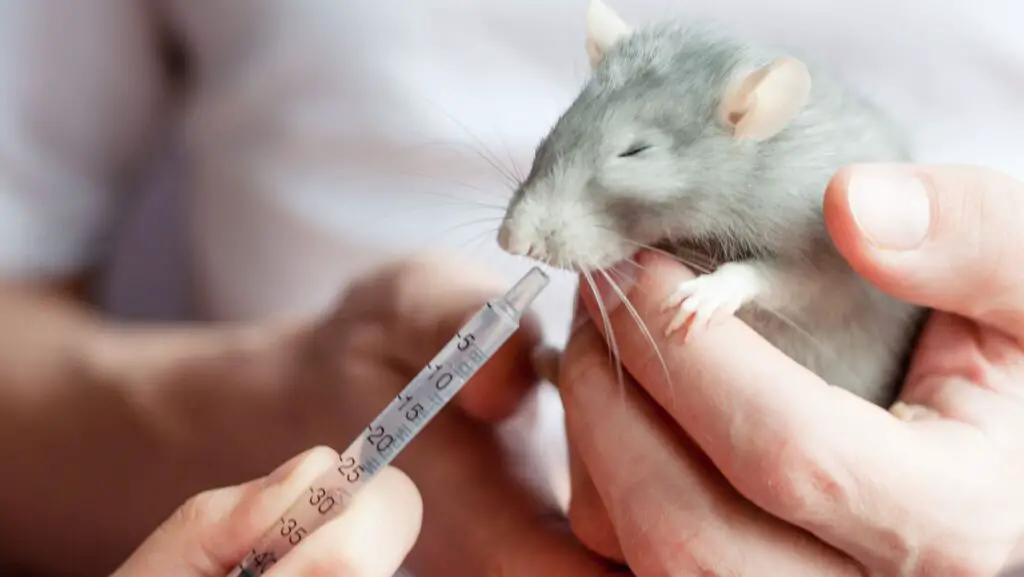
All through our lives, we continue to brush our teeth and care about our dental and oral health. Not only that, but we often tend to care about our pet’s dental health as well. In fact, the marketplace today has pet brushes, Toothpaste, chewing treats and other similar dental care products. But what about rats? Do you even think about your Rat’s dental care and oral hygiene? Or, Can Rats have Toothpaste and a dental care routine like other pet animals? Come, let’s find out.
Table of Contents
Can mice and eat and Use toothpaste?
Rats do not require using Toothpaste or even brushing their teeth like humans or other pets/ domestic animals. Unlike us, rats’ teeth naturally wear down through the act of gnawing. Rats gnaw on any object available around, and that helps keep their teeth at a healthy length. Domesticated rats gnaw on objects like chew toys or hard treats that prevent their teeth from becoming overgrown.
Besides that, rats also have a diet that consists of hard and abrasive foods. Their diet helps in wearing down their teeth. However, some domesticated rats may need appropriate items to chew on to ensure their dental health. While they do not need toothpaste or toothbrush, maintaining their oral hygiene through proper diet and offering suitable gnawing is crucial. Rats are tiny, intelligent creatures with unique dental anatomy. However, their dental anatomy is so unique from that of humans, and thus, they do not need our dental care products.
Rat’s teeth and dental anatomy different from humans
They’re a huge difference in the teeth and dental anatomy of Rats and Humans. For instance:
- Rats have long and continuously growing incisors at their mouth’s front. Their incisors have a hard enamel and are curved, allowing them to gnaw through various objects. In contrast, humans have shorter incisors that only grow till a certain age during childhood and not throughout their lives.
- Rats don’t have canine teeth, which are present in humans and other mammals. Canines in mammals are sharp and right beside incisors. Whereas in rats, there are molars directly after incisors.
- Rats have a complex molar structure with cusps and ridges that allow for chewing and grinding. Their molar allows breaking down food effectively along with all the ruckus they create around. Whereas humans’ molars typically have a flatter surface that allows crushing and grinding.
- While human teeth grow for a limited period, rats’ teeth continue to grow for their life. This growth adds to their natural nature and compensates for the natural wear caused by gnawing. The continuous growth of teeth in rats ensures maintaining a functional length.
- Rats have two sets of incisors, no canines, no premolars, and three sets of molars on each side of the upper and lower jaws (2-0-0-3). In contrast, humans have two sets of incisors, one canine set, two premolars, and three molars on each side of the upper and lower jaws (2-1-2-3).
These difference and uniqueness in the dental anatomy of rats reflect their distinct dietary and oral care needs. Their specialized teeth allow them to adapt to their natural environments.

Significance of Dental Health of Rats
While we may not often think about it but dental health plays a significant role in a rat’s overall well-being. Rats are omnivorous and healthy teeth are important for their ability to consume a balanced diet. Rats require to have a variety of foods for optimal nutrition, and dental issues can make it difficult for them to chew and eat. This may further lead to nutritional deficiencies and overall poor health.
In addition, rats also tend to suffer from dental problems like overgrown incisors and malocclusion (misalignment of teeth). Both of these dental conditions can result in pain, eating difficulty, abscesses or infections in rats. Regular dental care is important for rants to prevent these conditions along with the right treatment. Also, if rats consume less, they will lose weight and become malnutrition. Healthy teeth allow rats to enjoy their meals and maintain a healthy weight.
Rats gnaw on objects, and it isn’t just a significant chewing behaviour, but it also adds to their behavioural stimulation. Gnawing and chewing help rats satisfy their natural instincts and keep them engaged. Dental negligence in rats can also lead to secondary health problems. Maintaining good dental hygiene ensures that rats can enjoy a healthy life. While rats in the wild or the ones who live on their own manage to keep healthy teeth. However, domestic rats often need additional support from their human parent to reduce the risk of dental complications.
How do I care for my pet rat’s dental and oral well-being?
If you have a pet rat, you certainly need to care for its dental and oral well-being. Here are some tips for the same:
- Make sure your Rat has a well-balanced diet. A pet rat’s diet may consist of high-quality commercial rat food along with occasional protein, vegetables, and fresh fruits. A well-balanced nutritious diet helps maintain good dental health by promoting proper wear of their teeth.
- Do offer different chew toys and treats to your rats. Pick chew toys and treats that are specifically designed for rats. Such items encourage gnawing and thus allow rats to wear down their teeth naturally. Avoid using plastic toys though you can opt for wooden blocks, hard cardboard, and mineral chews.
- Or, include hard food items like unsalted nuts, dog biscuits, dry whole grain pasta, etc.
- Make sure your Rat has access to fresh and clean water all the time since hydration is essential for overall health.
- If you have a pet rat, take it for regular dental checkups. Monitor your Rat’s teeth regularly for any signs of overgrowth, misalignment, or other dental issues. Upon noticing any abnormalities, consult a veterinarian, especially one experienced in small animal dentistry.
Can eating Toothpaste kill rats?
Yes, eating Toothpaste is harmful to rats and may potentially prove fatal. Toothpaste formulations typically contain Fluoride, an ingredient that works magically for the health and shine of teeth. However, Fluoride in Toothpaste ingested in large amounts can prove toxic for rats.
Also, besides Fluoride, Toothpaste also contains ingredients like Xylitol that contain toxicity for rats. Ingesting Fluoride or Xylitol can result in vomiting, diarrhoea, seizures, and even death in rats.
It is important to keep Toothpaste or any similar product away from rats’ reach, making sure nothing is exposed. If your pet rat accidentally ingests Toothpaste, take them for veterinary assistance immediately.
Do rats like the smell of Toothpaste?
Rats, being highly sensitive to smells, won’t enjoy the smell of Toothpaste, especially minty Toothpaste. The olfactory system of rats can detect odours and pheromones relevant to their natural environment. The smell of Toothpaste can appear unfamiliar and overwhelming to rats. Besides that, the ingredients, like Fluoride or essential oils, might not be appealing or safe for rats to ingest.
Bottom Line…
In conclusion, rats should not be given Toothpaste. The flavour and ingredients in Toothpaste may attract rats, but it isn’t good for their health. It’s important to prioritize their well-being by providing appropriate dental care options specifically designed for rodents and consulting a veterinarian for proper guidance.

Hi, This is Lyn, I suffer from dental sensitivity for a very long time. PowerToothpaste.com is where I share my views of various toothpaste brands, along with tips on how to use toothpaste and what to look for when purchasing.
